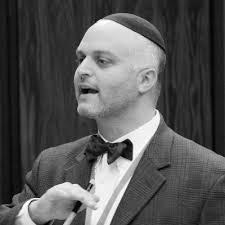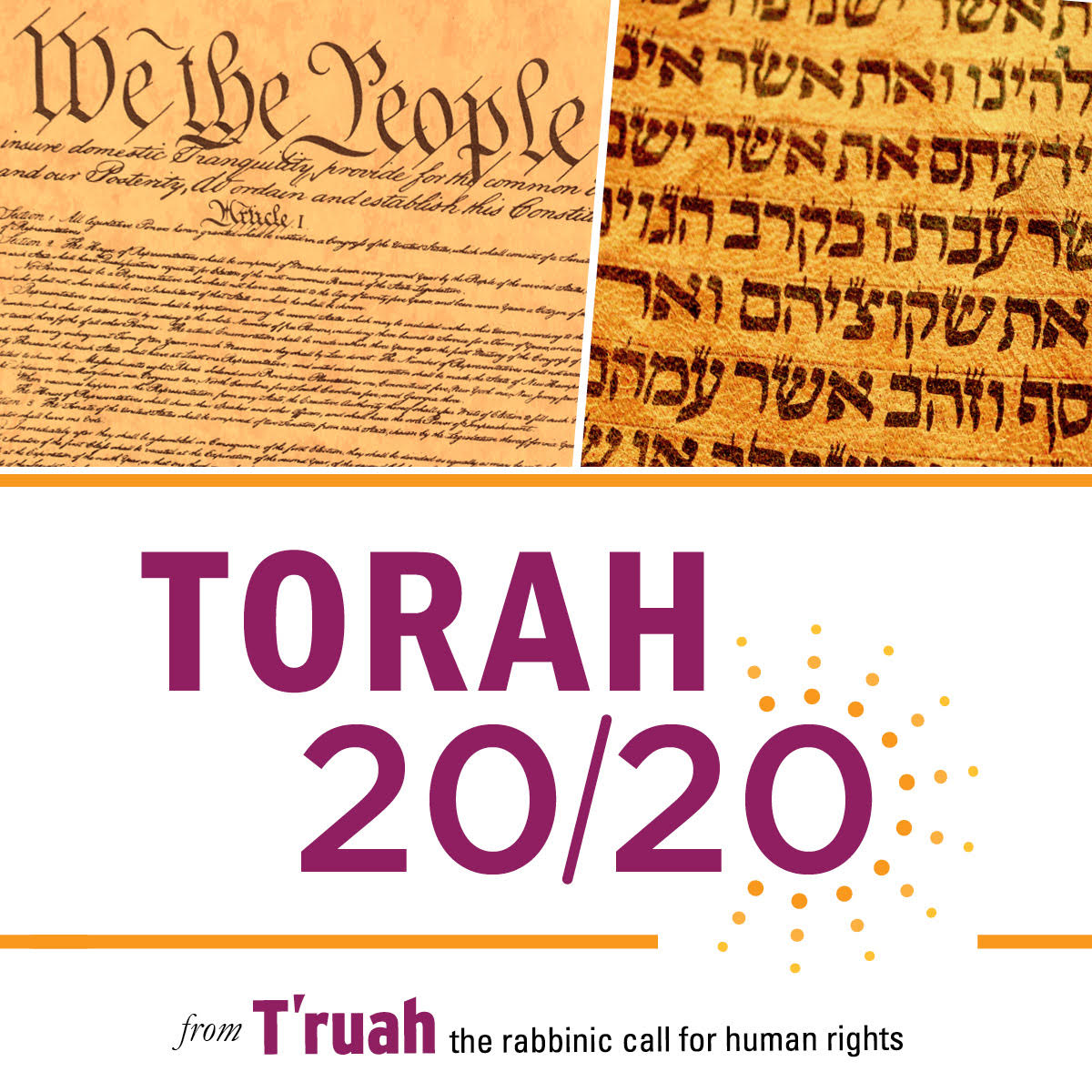A d’var torah for Simchat Torah Parshat Bereshit (Gen. 1:1 – 6:8).
As the story goes, there was a baal teshuvah, newly religiously observant person, who started crying in synagogue during the Torah reading. When the rabbi asked him about this display of emotion, he replied that he just does not understand why Joseph’s brothers could sell him into slavery. This profound empathy moved the rabbi to tears. The next year when they got to Parshat Vayeshev the rabbi was ready and went over to console the crying parishioner during the Torah reading. The following year the rabbi preempted the situation and brought the congregant a tissue. The rabbi was surprised to see that he was not crying or sad, but instead visibly angry. When the rabbi asked the person why he was angry he replied, “I am really annoyed. I used to be sad that his brothers had it out for him, but this time why didn’t Joseph learn his lesson?”
Sign up to receive Torah 20/20 in your inbox each week.
Every year, the Jewish community reads the entire Torah, our most holy text, on a weekly cycle. With the advent of Simchat Torah we will end this year’s reading of the Torah and start reading it again from the beginning. It is quoted in the name of Louis Pasteur, “No one is more the stranger than himself <sic> at another time”. Each year we look at the wisdom in this text like a stranger with fresh eyes, and each year we turn to it for sustenance as we navigate our ever-changing, yet also frequently cyclical, world. The nature of the Torah is that we can revisit it throughout our lives. When we learn Torah we demand relevance from revelation and its meaning evolves.
As we start again from the beginning, we can look at how Adam and Eve saw things. There we read:
And when the woman saw that the tree was good for food, and that it was a delight to the eyes, and that the tree was to be desired to make one wise, she took of the fruit thereof, and did eat; and she gave also unto her husband with her, and he did eat. And the eyes of them both were opened, and they knew that they were naked; and they sewed fig-leaves together, and made themselves girdles. (Genesis 3:6-7)
Something is peculiar in the language here. If the eating itself caused their eyes to be opened, the Torah would have said that she ate and her eyes were opened and then he ate and his eyes were opened. Instead it says “the eyes of them both were opened” only after they both ate. What do we make of this?
Find more commentaries on Simchat Torah
In his genre creating masterpiece, The Tipping Point, Malcolm Gladwell describes the way we can influence each other. There he wrote:
…if I smile and you see me and smile in response–even a microsmile that takes no more than several milliseconds–it’s not just you imitating or empathizing with me. It may also be a way that I can pass on my happiness to you. Emotion is contagious. (The Tipping Point 84-85)
I posit that this is exactly what happened in Eden. Eve ate of the fruit, enjoyed it, and shared it with Adam. When Adam ate, instead of reciprocating with a microsmile, he winced. In so doing he rejected her bid to share something pleasurable. With that wince his eyes made it clear that they did not experience Good and Bad the same way anymore. In that moment, both of their eyes were opened.
Since then the complexity of coming together has grown exponentially. The nature of politics in a democratic society is preserving the tension between our wanting to be the same and struggling with our differences and desire for individuality. Each of us may have radically different notions of what is tasty or pleasurable, let alone what is Good and Bad for society. From the beginning, this country has been an imperfect but valiant effort “to form a more perfect Union.”
 As we return to Genesis and the Garden of Eden we are all invited to revisit this tension. This cycle of reading the Torah will accompany us through a high-stakes year in America life in 2020. In Torah 20/20, T’ruah is asking rabbis, writers, political leaders, and artists to explore democracy and questions of how to build a just society through the lens of the weekly Torah reading. How might we want to cry or get angry when reading about Joseph being sold into slavery by his brothers? How does exploring this wisdom impact how we might want to fight human trafficking, systemic racism, or economic disparity? As we look ahead at 2020 we see the value of seeing the world anew with fresh eyes.
As we return to Genesis and the Garden of Eden we are all invited to revisit this tension. This cycle of reading the Torah will accompany us through a high-stakes year in America life in 2020. In Torah 20/20, T’ruah is asking rabbis, writers, political leaders, and artists to explore democracy and questions of how to build a just society through the lens of the weekly Torah reading. How might we want to cry or get angry when reading about Joseph being sold into slavery by his brothers? How does exploring this wisdom impact how we might want to fight human trafficking, systemic racism, or economic disparity? As we look ahead at 2020 we see the value of seeing the world anew with fresh eyes.
Rabbi Avi Katz Orlow is the Vice President at the Foundation for Jewish Camp. He has a deep love of irreverent, relevant, and revealing Torah and blogs religiously at saidtomyself.com.


